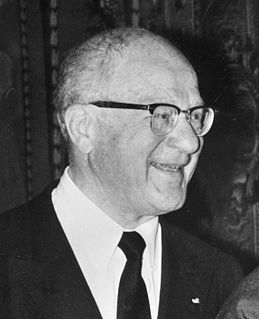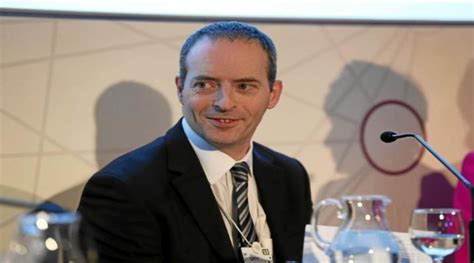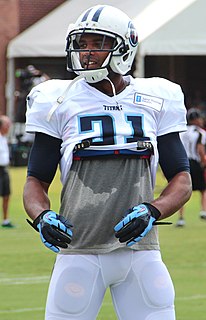A Quote by Avery Brundage
The sportsman knows that a sport is a recreation, a game, an amusement and a pastime, but his eyes are fixed on a higher goal, on the most important thing in his life, which is his education or his vocation.
Related Quotes
The master in the art of living makes little distinction between his work and his play, his labor and his leisure, his mind and his body, his information and his recreation, his love and his religion. He hardly knows which is which. He simply pursues his vision of excellence at whatever he does, leaving others to decide whether he is working or playing. To him he's always doing both.
One may come armoured, Invinsible. His will immobile meets the mobile hour. The world blows cannot bend this Victor Head. Calm and sure are his steps in the growing night. The goal recedes, he hurries not his pace. He asks from no help from the inferior Gods. His eyes are fixed on the immutable aim.
An educator's most important task, one might say his holy duty, is to see to it that no child is discouraged at school, and that a child who enters school already discouraged regains his self-confidence through his school and his teacher. This goes hand in hand with the vocation of the educator, for education is possible only with children who look hopefully and joyfully upon the future.
A hunter that is worth his salt does not catch game because he sets his traps, or because he knows the hunting routines of his prey, but because he himself has no routines. This is his advantage. He is not at all like the animals he is after, fixed by heavy routines and predictable quirks; he is free, fluid, unpredictable
Finally, this is one way to reconcile the delight in beauty with the bourgeois life. Aschenbach, on one reading, has spent virtually all of his adult life balancing his restrained homosexuality, which is bound together with his sensitivity to beauty and thus with his artistic vocation, against the demands of conventional society.
Take the happiest man, the one most envied by the world, and in nine cases out of ten his inmost consciousness is one of failure. Either his ideals in the line of his achievements are pitched far higher than the achievements themselves, or else he has secret ideals of which the world knows nothing, and in regard to which he inwardly knows himself to be found wanting.
The mellow autumn came, and with it came The promised party, to enjoy its sweets. The corn is cut, the manor full of game; The pointer ranges, and the sportsman beats In russet jacket;--lynx-like is his aim; Full grows his bag, and wonderful his feats. An, nutbrown partridges! An, brilliant pheasants! And ah, ye poachers!--'Tis no sport for peasants.
His [Henry Cavendish's] Theory of the Universe seems to have been, that it consisted solely of a multitude of objects which could be weighed, numbered, and measured; and the vocation to which he considered himself called was, to weigh, number and measure as many of those objects as his allotted three-score years and ten would permit. This conviction biased all his doings, alike his great scientific enterprises, and the petty details of his daily life.






































